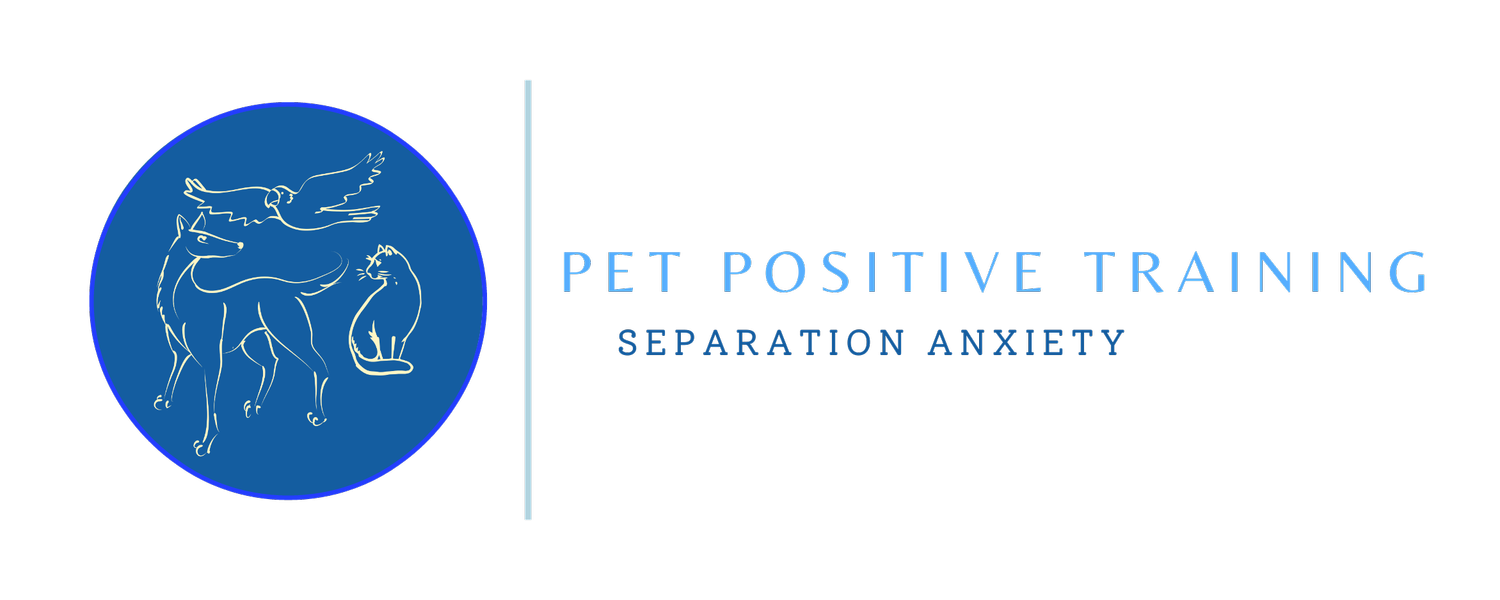Should my older dog be assessed for separation anxiety?
Elderly pups can also experience symptoms that may be separation anxiety. Sometimes it can be treated the same way as other dogs, and sometimes it may be other medical or behavioral needs that can be met in other ways.
Whether you choose to undergo a prolonged separation protocol with an older dog is a big personal choice, and I will support you in whatever choice you make.
Signs and Symptoms
Sometimes a dog shows signs of separation-related behavior issues late in life. Maybe they had some separation issues their whole life, but they have become more pronounced, maybe they have had a sudden onset of these behaviors, or they were only detected recently.
Most often for older dogs who have separation issues pop up, we see barking, howling, whining, soiling the house, and restlessness or inability to settle. These are the same signs of separation anxiety or separation issues as in younger dogs… but that may not be the whole story.
Possible Other Causes
With any pet of any age, if there is a sudden onset of new behavior it is always a good idea to check in with your vet first. Soiling the house or restlessness when it wasn’t an issue before may be a medical issue rather than behavioral. Incontinence issues and arthritis may be possible causes of all of these behaviors. Remember that your dog is never intentionally pooping inside, especially if they are house trained. It is either medical or a sympathetic nervous response (fight/flight/freeze) which means that it is out of their control. Never scold a dog or puppy of any age for soiling the house.
All of these symptoms can also be signs of Canine Cognitive Dysfunction (CCD) - dog dementia. They may be vocalizing, soiling, or moving around more and may also have sleep-wake cycle changes and be disoriented. This is also something you should check in with your vet about and they might prescribe medication, supplements, special food, and enrichment! Training and enrichment can help some of these pups form new brain pathways and get reinvigorated as well as re-oriented.
Changes in sight and hearing may affect a dog’s feelings about being alone because they are experiencing their surroundings differently. Sometimes intentionally working on ways for your dog to orient themselves (textured rugs at thresholds, scent spots at corners, lights or gentle air puffs to help wake them up instead of touching or voice) will help them settle into a new routine of alone time.
You can do a separation protocol with or without a clean bill of health
So, with all of that in mind, should your dog be assessed for separation anxiety?
You can tell from everything I have said so far that a vet visit is probably in order for most older dogs to rule out other medical causes first. That does not mean you shouldn’t be assessed though. If your dog has a clean bill of health, and these symptoms persist then it may be time to get a protocol rolling with a Certified Separation Anxiety Trainer to help your dog learn or re-learn how to feel safe when alone.
It is also not wrong to undergo a separation protocol even if some of these other medical causes are a factor. Just like a puppy who particularly struggles with alone time, an older dog who is struggling to feel ok alone may also benefit from a slow, incremental, and careful approach to figuring out how to feel safe when alone.
Time and Emotional Considerations
All of that being said, there is another thing to consider, making your elderly pet’s life as comfy and happy as possible. Separation protocols generally take multiple months to complete, and every dog has a very different timeline to reaching alone time goals.
If you feel like your dog would benefit from a careful approach to re-introducing alone time, I am here for you! Please feel free to reach out or schedule an Initial Assessment. Scheduling Link
If you feel like the best option for your older dog is management of alone time instead of regularly training for months, that is not wrong either! See if you can get a group on board to watch your pup to limit their alone time and see if your vet has suggestions for how to make alone time as calm as possible. I am also here for you in this case! Feel welcome to reach out or set up a Virtual Private Session for management techniques and advice. Scheduling Link


